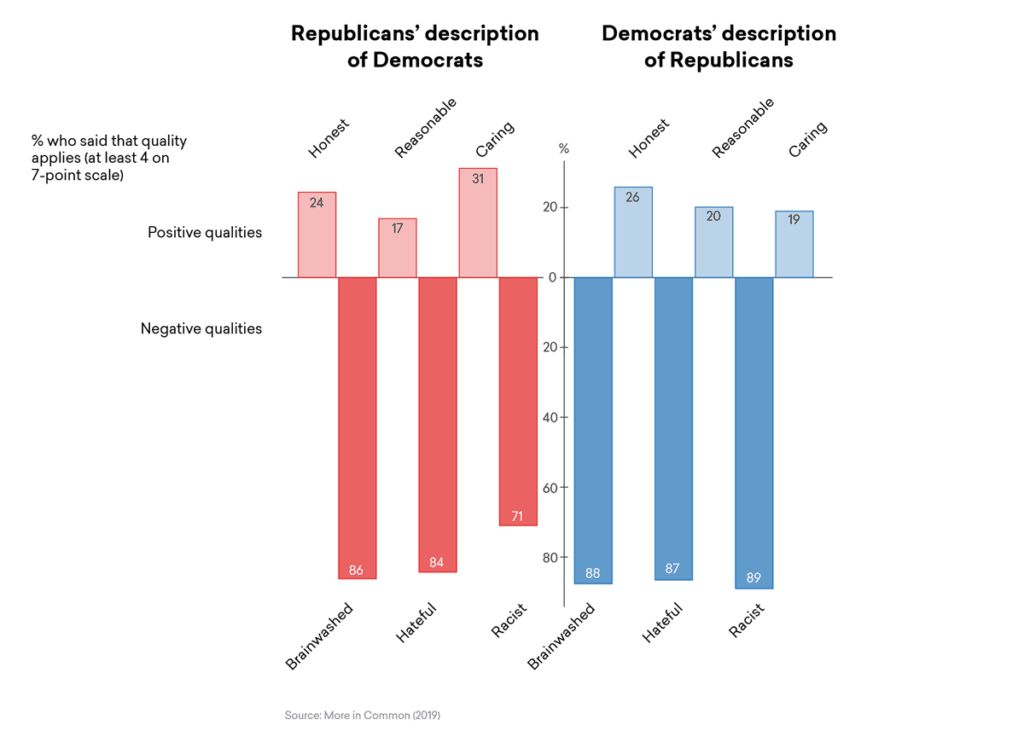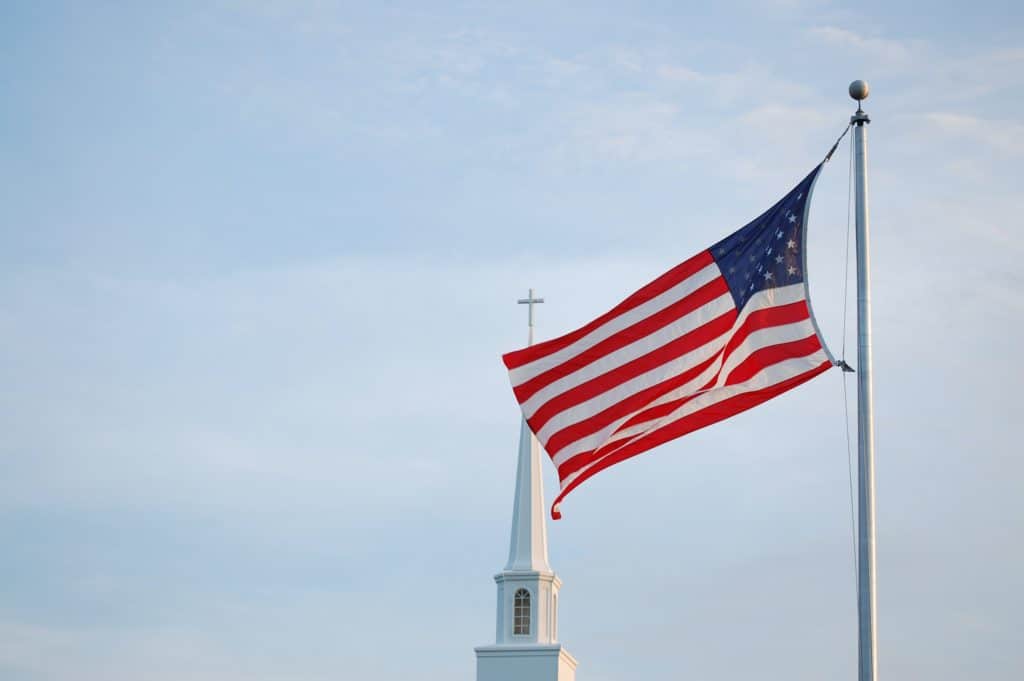I’m convinced that the second greatest threat to the witness of American evangelicals is the seemingly idolatrous fascination we have with American exceptionalism. The first greatest threat is the rampant religious nominalism that masquerades as genuine faith, but that rant will have to be reserved for another post.
The most common forum in which this “second-greatest threat” is seen is unquestionably on social media. This realization is part of what led me to leave social media for an indefinite period of time (it’s been wonderful, by the way. Perhaps that’s another experience I’ll tease out in a future post), and based on what I’ve been told by others and what I’ve seen in the news, I’m immediately feeling like leaving such a toxic environment has been nothing but beneficial for my soul and for my ability to love my neighbor well.
But why is our behavior on social media the second greatest threat to the witness of Christians in America? I think the problem boils down to this: American Christians, by and large, view the world through political lenses first, rather than biblical lenses. The American Christian sensibility seems to be more enamored with the Kingdom of this World rather than the Kingdom of God, and as such, American Evangelicals are more prone to view the world’s problems, and therefore it’s solutions, as being rooted in politics, rather than the biblical categories of sin and salvation. It’s no secret that Facebook and Twitter are hotbeds of pointless, yet ruthless debates among Christians. But, setting aside the unbiblical manner in which most Christian disagreement is voiced, instead of these debates being centered around matters of eternal importance, they are instead concerned with political issues that will not matter 10,000 years from now.
Let me provide a few examples:

This image is from More In Common, an organization who “works on both short and longer term initiatives to address the underlying drivers of fracturing and polarization, and build more united, resilient and inclusive societies.” Both Republicans and Democrats each view each other with the same amount of disdain. What’s interesting is that in the same report that these numbers come from, one of the reasons the study found as to why this was the case was the polarizing nature of social media. Christians have fallen into this trap, as David French points out:
“There’s your good friend, the person who’d give you the shirt off his back, show up any hour to help a person in need, and would never compromise his values in his marriage or his business—yet there he is, absolutely flaming the libs on Facebook, rejecting the ‘Gates Vaccine,’ and reveling in the most outrageous attacks on his political opponents.
Or there’s the incredibly sweet woman at church. She volunteers in the nursery. She shows up for every community work day to serve the city’s poorest and most disadvantaged kids. And yet she’ll send you Alex Jones clips, trying to prove to you how bad “they” (Democrats) really are.
And some of these same folks, when you urge kindness and decency in political engagement will look at you incredulously. “Don’t you remember what they did to Mitt Romney?” The message is clear—in the realm of politics, personal values matter mainly when they work. Unlike in their businesses, marriages, and schools, compliance with commandments is conditioned on immediate results.”
The point that French is making is that because Christian education largely fails to include robust teaching on how Christians should engage in the political sphere, our lens through which we view our involvement is taken more from the world rather than the Bible. We look to obviously biased and skewed news sources such as Fox News and CNN to help us navigate political issues. And because politics is such a dominant talking point in America right now and political tensions are so high in the U.S., the result is that many American evangelicals find themselves viewing the world through a political lens rather than a biblical one.
Here’s another example of this in action:

I captured this post before I went off social media because I knew I’d like to address it at some point in the future (and here we are). This was created (not reposted or shared or copied from anywhere else) by a self-professed follower of Christ who also happens to be running for a political office. A large part of this person’s campaign is based upon the fact that they are a devout Christian. But one look at this post shows that either they are, in fact, not as devout as they think and they need to be discipled, or they are intentionally misusing the scripture to rally the troops to fight against the “tyranny” of masks (their words, not mine). If the former, then someone needs to disciple this person badly. If the latter, then I honestly think, based on my own personal correspondence with this person, that they have no idea that what they are doing is wrong, and my attempts to convince them that this was not ok fell on deaf ears, not only of the original poster, but also those whom they’ve unfortunately influenced to follow them.
The inaccuracy, the sensationalism, the very poor exegesis of the Scriptures—these are the result of viewing the world primarily through a political lens rather than a biblical one. For this person, and the multitudes of people that wholeheartedly support them, their religious sensibility is not strong enough to see serious error when it’s right in front of them because their hearts are convinced, whether they know it or not, that the most important kingdom of which they need to be a part of and contribute to is not the Kingdom of God—which necessitates fidelity to the truth of Scripture (John 17:17; 2 Timothy 3:16), love of neighbor (Mark 12:31; Luke 10:25-37), submission to the governing authorities (Romans 13:1-2; 1 Peter 2:17), and sacrifice of personal preferences for the sake of others (Philippians 2:3-4; 1 Corinthians 8:13; Romans 14:13-15)—but is instead the kingdom of this world. Or rather, the Kingdom of America. Only a worldview that subjects the Kingdom of God to American exceptionalism can produce this kind of egregious error with a hearty amen, which the above post definitely received. And that’s exactly what this problem that I’m trying to describe is–a worldview issue. We are viewing the world through the wrong lens, and everything we see is colored by that lens.
Now, I’m not implying, to borrow a phrase from a friend, that we become keyboard crusaders and try and alleviate the damage through online debates. I’ve tried that, and it only adds fuel to the fire. But instead, we should devote ourselves to prioritizing the Kingdom of God and the ethics that Kingdom requires of us as detailed in the Scriptures over our seeming unhealthy fascination with politics. American politics is a dumpster fire, and why any American evangelical is still putting any kind of energy into reforming that system is beyond me. It’s irreparable as far as I’m concerned. And I understand that’s probably a very minority and extreme view. But if we turn off Fox News and start taking our political engagement cues from Scripture rather than biased pundits who thrive on outrage and sensationalization, then over time we’ll start viewing the world primarily through the lens of Scripture rather than the lens of politics. We’ll see that our ultimate allegiance is to the Kingdom of God, not the United States of America nor the equally disastrous Republican and Democratic parties. Taking a page from James Davison Hunter’s playbook, we’ll then be able to adopt a “faithful presence” in this world that shows that our hope is not in politics, but in a God whose perfect will will ensure that every wrong thing in the world will be made right again.
Charles Taylor says, “there is a notion of our good which goes beyond human flourishing, which we may gain even while failing utterly on the scales of human flourishing, even through failing (like dying young on a cross) …Christianity redefines our ends so as to take us beyond flourishing.”
What solid, lasting, steadfast, robust hope this is! If we want to seek what is best for our country, then we must cultivate a vision that goes beyond this country. There are greater values than life, liberty, and the pursuit of happiness. There is a greater Guide than the Constitution. There is a greater goal than human flourishing. And all of these are found in the Kingdom of God, which, if we pursue first, will result in all the rest (Matthew 6:33). This is true patriotism. In his book, Onward, Russell Moore says, “we are Americans best if we are not Americans first.” I long for the day when American evangelicalism becomes disillusioned by its obsession with weak patriotism and wakes up to a more enchanting, transcendent purpose than American exceptionalism. There is a greater fight for us to wage than the one we are currently championing.
Photo by Brad Dodson on Unsplash

